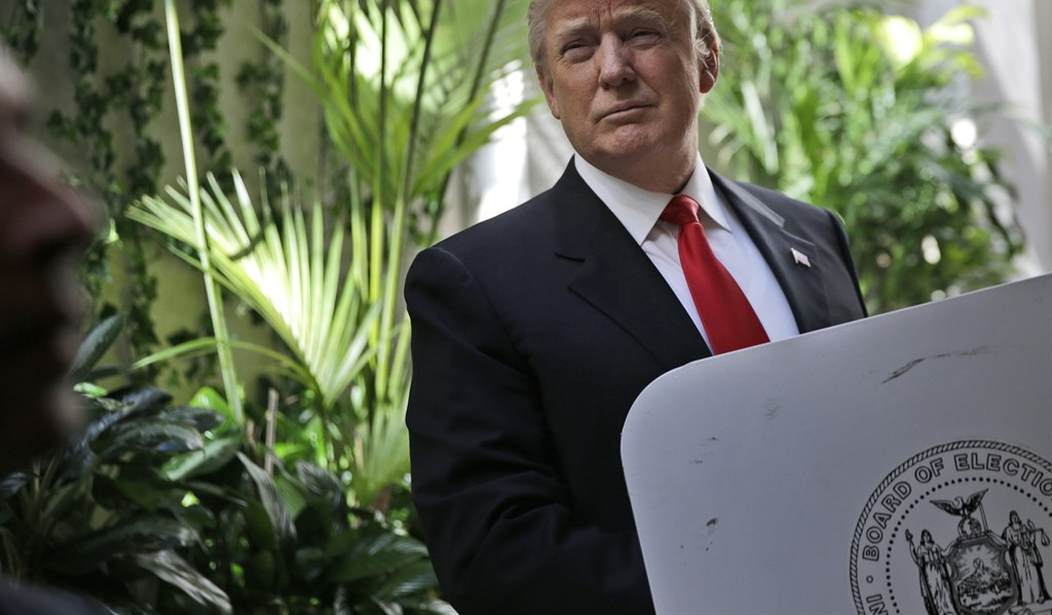PARIS -- Donald Trump has keen economic instincts. The Republican presidential front-runner has been mocked for equating complex problems to business deals, but this worldview makes Trump the candidate best qualified to lead the U.S. in an era when warfare is most often economic in nature.
Trump's economic focus sets him apart from other presidential candidates. Unlike his opponents, he has a lengthy track record of negotiating and successfully executing lucrative business deals. It's easy to understand why Trump is inclined to view problems through an economic prism, though it has occasionally made him a target for ridicule.
In a February debate, Trump said he would act as a neutral arbiter in negotiations between Israel and the Palestinians. Florida Sen. Marco Rubio, who has since dropped out of the race, went on the attack.
"Donald might be able to build condos in the Palestinian areas, but ... this is not a real estate deal," Rubio said.
Actually, it's a land agreement that the Israelis and Palestinians are squabbling over.
The problem for the Republican establishment and its favored candidates is that Trump wouldn't approach conflicts with the sort of biases that are paid for by special interests.
Here's a suggestion for a future presidential debate: To determine whether the candidates have a grasp on 21st century warfare, use a game-show format. The moderator would blurt out various entities opposed to U.S. policies: "Russia, China, Saudi Arabia, Iran, the Islamic State ..." Each candidate must then hit one of two buttons, one labeled "BOMB," the other labeled "TRADE." And no, there isn't a "TALK" button, because if you're going to talk, you might as well just engage in some trade and make money while you're at it. Not only would there be no "TALK" button, but there would be no talking, either -- at least not during the button-pushing phase. Only later would each candidate explain the choice of either trading with or bombing a particular country.
Recommended
I wonder how many of the current candidates would be sweating bullets when forced to make a binary choice of trading with or bombing Iran, for example, while simultaneously trying to triangulate the decision with the various special interest groups funding their campaigns.
Warfare has become economic rather than militaristic, fought with deals and trade rather than with bullets and bombs. The only exception is when an enemy can't be reasoned with, as is the case with the Islamic State. But even the ISIS problem could have been nipped in the bud earlier by waging economic warfare against the terror group's sponsors in the Persian Gulf. I'm not talking about sanctions, which are of questionable effectiveness, but rather using trade as leverage, much as Russia has recently done with Ukraine in suspending its free-trade agreement with Ukraine.
It would seem that Trump is the only candidate in either party who understands the economic nature of modern warfare. He's certainly the only one who has any practical experience with it.
Trump has said repeatedly that China is shafting America on trade and has vowed to reform the trade relationship between the two countries. He has said that he would impose tariffs to force China to change its trade policies, bring an end to "China's ongoing theft of intellectual property," and have China designated as a currency manipulator.
Trump's stance on China has drawn the ire of the Chinese finance minister, Lou Jiwei, who recently fired back in a Wall Street Journal interview, calling Trump an "irrational type" and adding that America "wouldn't be entitled to world leadership" if Trump followed through on his proposed trade policies.
It would be interesting to see what a president with world-renowned capitalist instincts could do for "America, Inc." in an era of predominantly economic warfare. If I were the Chinese finance minister, I'd be uneasy, too.

























Join the conversation as a VIP Member